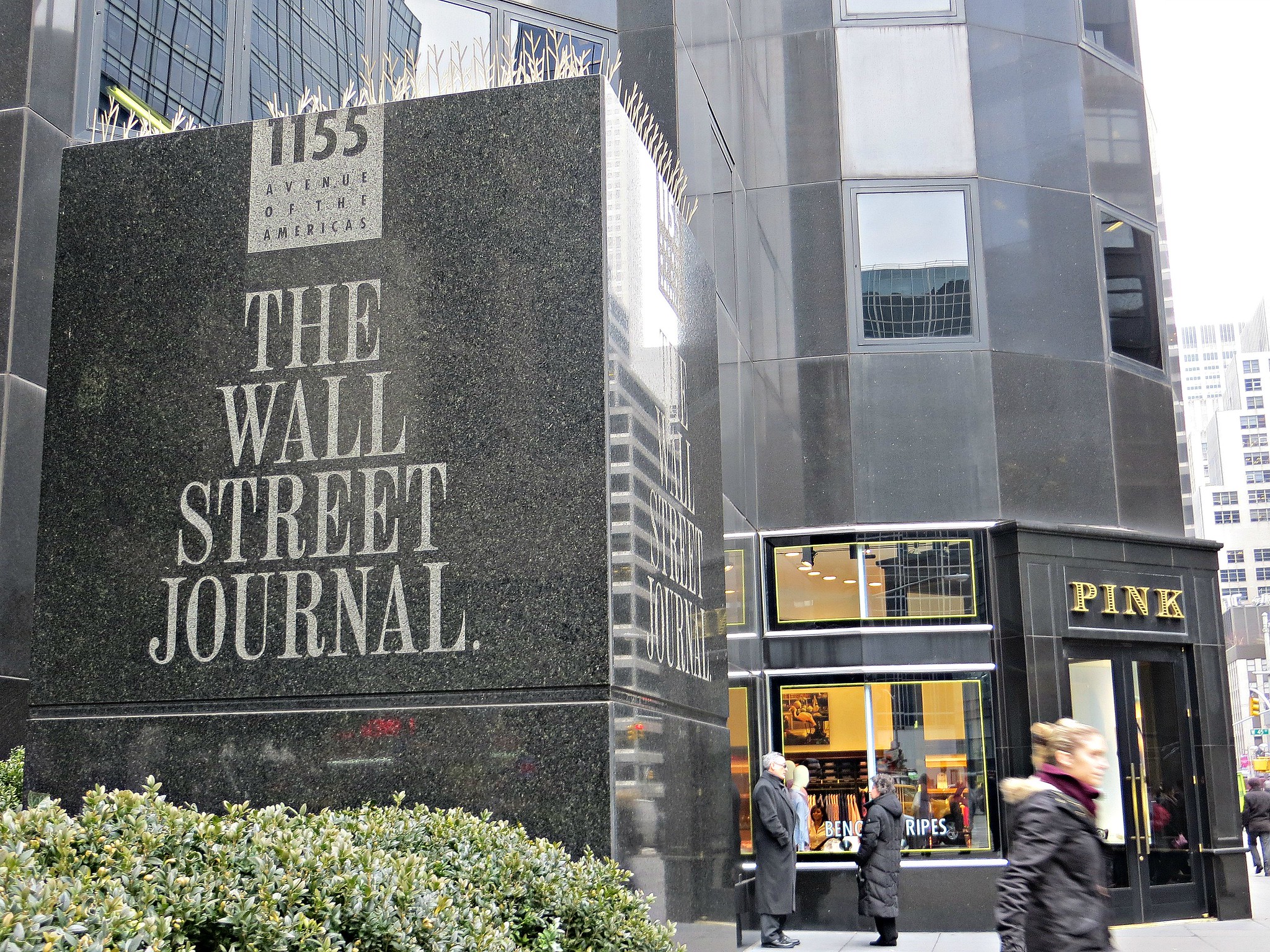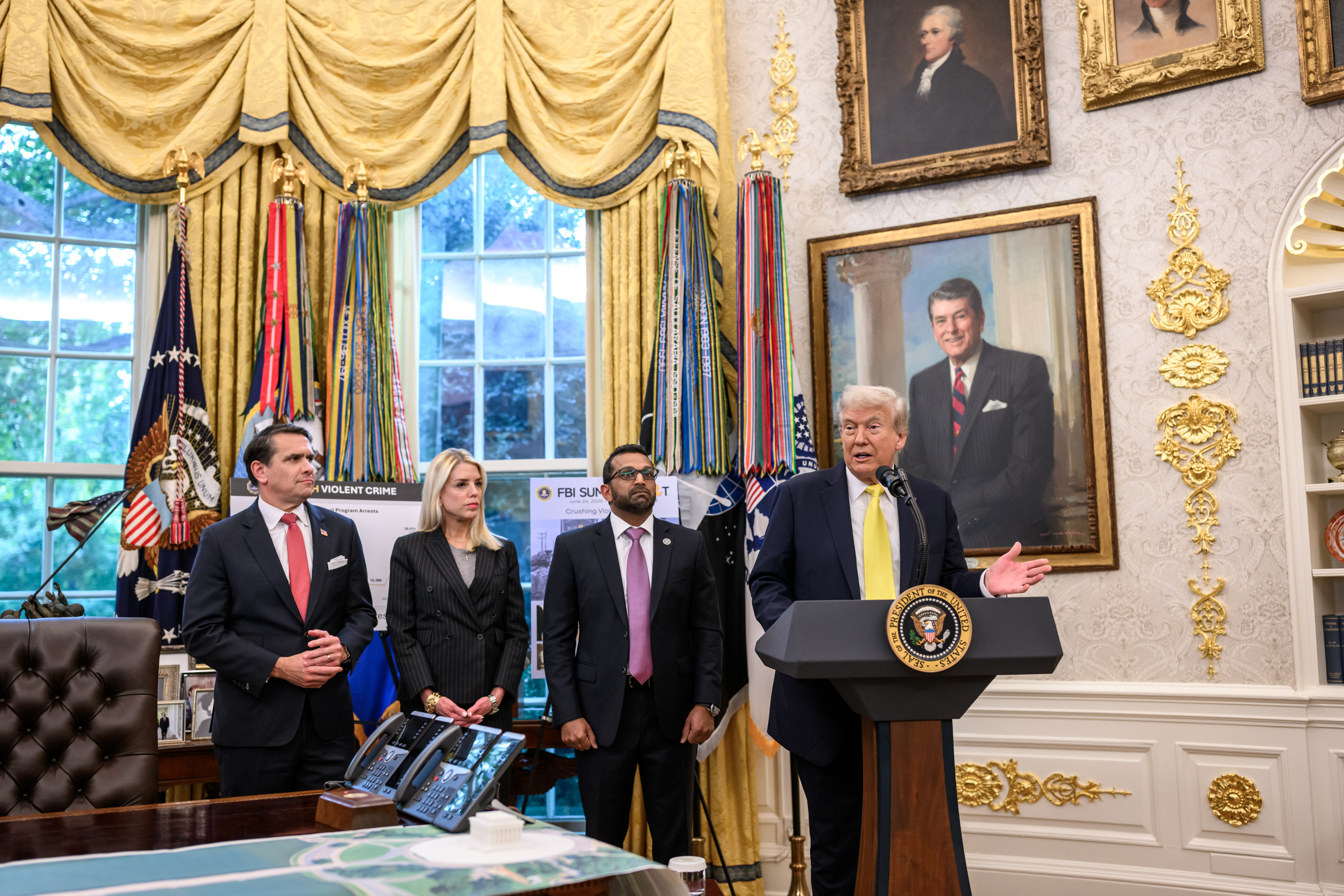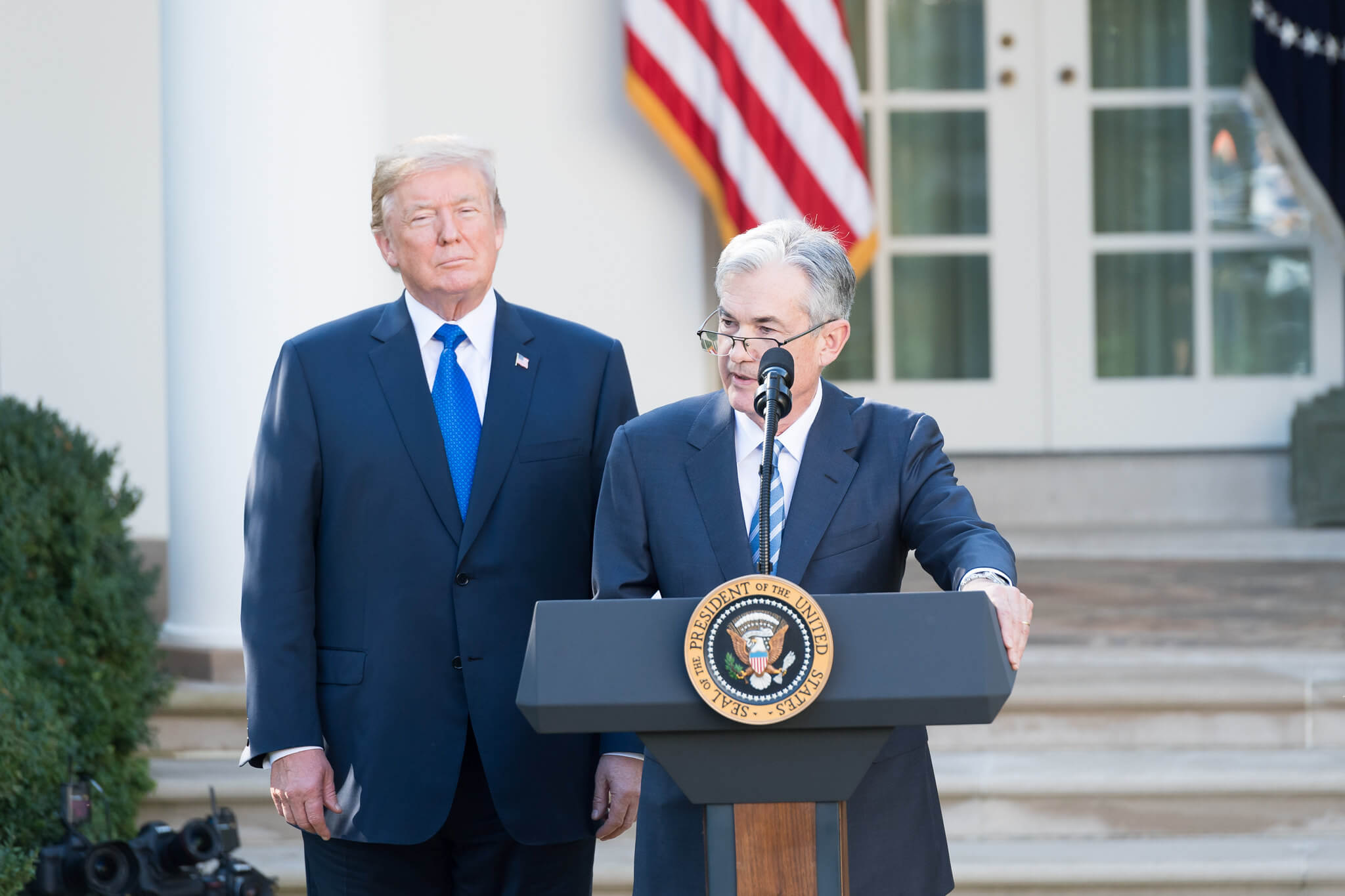The Situation: The Wilde-Hiss Effect

The Situation on Wednesday argued against releasing the so-called Epstein files—just in time for Attorney General Pam Bondi to ask for a court order unsealing grand jury information in the matter and for the Wall Street Journal to report on a “bawdy” birthday greeting President Trump reportedly sent to the sex-trafficker-financier that was, well, suggestive.
Now President Trump is suing the Wall Street Journal alleging that the letter is a fabrication and that the Journal libeled Trump when it published a story about it, as it allegedly knew or should have known that it was false.
It is generally a bad idea—a really bad idea—to sue people for libel over allegations you know to be true.
A friend texted me this morning, “Oscar Wilde, anyone?” He might just as easily have texted, “Alger Hiss, anyone?” In both cases, prominent men faced with allegations damaging to their reputations, chose to sue their accusers full well knowing the allegations to be true. Both Wilde and Hiss ended up in prison.
This case is different from some of Trump’s other pressure-tactic suits. Suing a newspaper and pollster over a poll you don’t like or a network over the editing of an interview with a rival candidate or over how an anchor characterized your prior sexual assault litigations doesn’t threaten to prove anything about one’s own prior conduct. Even if the suits are completely meritless, as they were, they threaten relatively little blowback.
Conversely, if you know you’ve been a communist and spied for Moscow, suing someone for saying that and risking what he might be able to reveal and prove about you is a really dumb move. And if you’re a public figure who lives in Victorian England, and you’re an active gay male, suing your lover’s father for accusing you of sodomy is not the brightest play either.
And similarly, if you happen to know you have written a birthday note to Jeffrey Epstein that suggests that you two share “certain things in common” and includes a sketch of a naked woman with your signature as her pubic hair, and if a newspaper known for accuracy and care and owned by political ally happens to publish a story about that note, and if you happen to know that story to be accurate, you would be quite foolish indeed to file a libel suit over the matter.
After all, lawsuits involve discovery—at least if they survive a motion to dismiss. And at a minimum, that would likely mean that you would be deposed about your relationship with Epstein. You would likely have to search for documents too, as would others. And your lawyers will certainly remember, even if you do not, that the Supreme Court showed no solicitude for Bill Clinton’s plight when he was president and argued that dealing with a civil sexual harassment lawsuit would be incompatible with the rigors of the presidency. They might remind you that Clinton’s situation in Paula Jones, in which he was a defendant dragged into court against his will, was more compelling than your situation is here. You, after all, are the plaintiff. You are only in court because you wanted to be.
All of which raises the question: Why the heck is Trump doing this?
One possibility—a highly remote one, in my view, but one we should acknowledge anyway—is that the story is actually false. If this is the case, the libel suit has merit if Trump can show that either the Journal knew it was false (which is inconceivable) or that the paper acted with reckless disregard for the truth.
Don’t put your money on this one. The Journal undoubtedly expected to have to litigate this story, not least because Trump’s lawyers advised the paper that it was false and defamatory (see p. 5 of the complaint), and will have scrubbed the facts very carefully. I know no more than what is in the story itself about how it was put together, but a newspaper like the Journal doesn’t go with a story this big about a person as powerful as Trump without dotting all of the i’s and crossing all of the t’s.
A second possibility is that the story is true, but that Trump thinks—like Wilde and Hiss did—that it can’t be proven true. So he thinks he can use the litigation to intimidate the press and raise doubts about the truth of the allegations. This was a dangerous move for Wilde and Hiss, and it’s a dangerous move for Trump too. The discovery process never flatters a man like Trump; there are a lot of people who know things about his relationship with Epstein; and there are undoubtedly other documents out there as well that reflect on it. Creating a formal legal process in which Trump has to provide materials to an opposing litigant and answer questions about those materials is a profoundly risky game.
Possibility number three—which I suspect is the most likely one—is that the story is true and the litigation is just for show. Trump knows he can’t afford discovery. He also knows his suit has no merit. So while he gets a news splash out of filing the lawsuit, he will then—as he did with the Des Moines Register poll suit—quietly drop it sometime down the road, before the discovery can actually do him any harm. This way, he gets much of the intimidation benefit of the suit. He costs News Corp. some money. But he doesn’t put much at risk.
A final possibility is that Trump hasn’t really considered the risks at all; he’s just rage-suing. Rage-suing is somewhat like rage-tweeting, except that it involves lawyers. With rage-tweeting, public relations people and policy folks clean up the damage after the fact. In the case of rage-suing, lawyers do so—assuming they can. If this is what’s going on here, Trump could dig himself into a real hole. He could get a judge who doesn’t look kindly on this sort of thing. He could end up having to turn over a lot of documents. He could end up having to testify under oath, the very thing that got Clinton into trouble.
The Epstein case is an odd matter to present a crisis for Trump. Trump’s relationship with Epstein ended two decades ago. On its face, it has nothing to do with his conduct running the executive branch, though his attorney general and FBI leadership sure to seem to be conducting their jobs oddly in light of it. Despite the smoke that surrounds the matter, it has yet to produce a specific allegation of wrongdoing by Trump—save for rank hypocrisy and demagoguery. It strikes me as far less significant objectively in our evaluation of Trump than, for example, L’Affaire Russe, the Ukraine phone call and associated machinations, the classified documents scandal, and—certainly—the Jan. 6 insurrection.
Yet Trump’s conduct throughout the recent flare-up over the Epstein case is so bizarre that I can only understand it as reflecting fear on his part—panic, really—that something is going to come out.
Ironically, there’s no surer way to make certain that it does than to sue a newspaper over a document the president knows to be real.
The Situation continues tomorrow.




